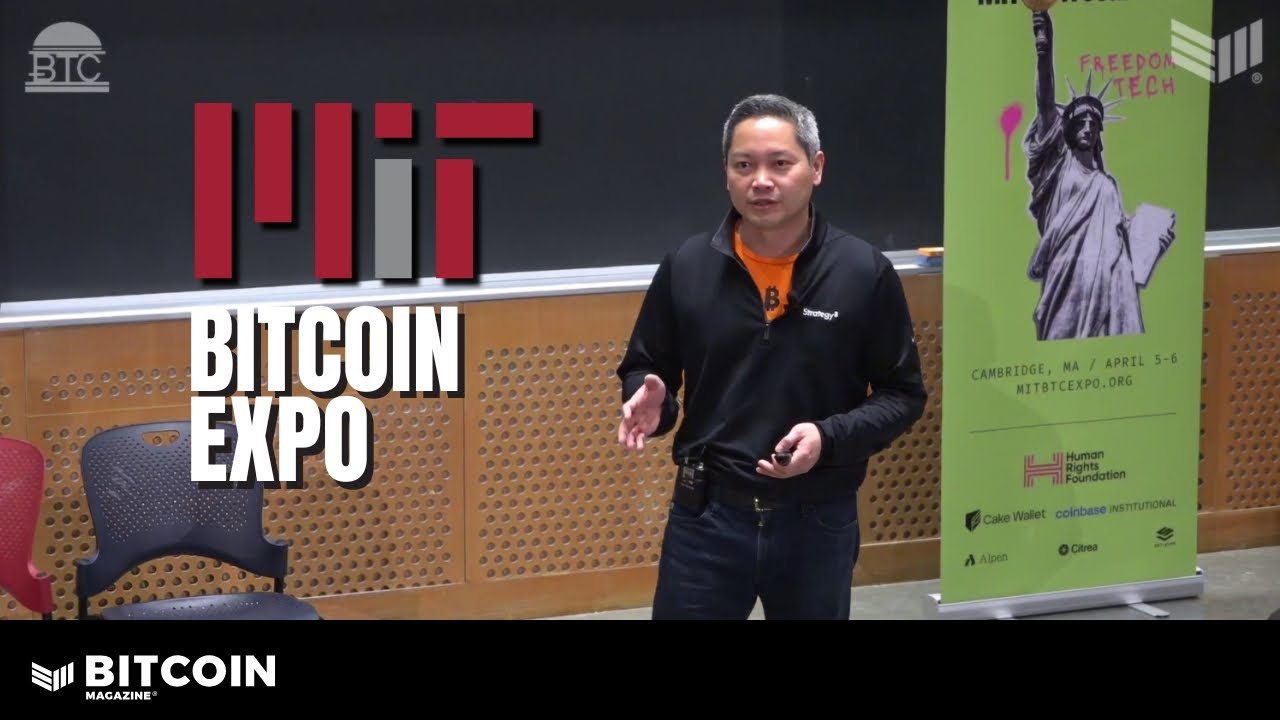At a recent keynote delivered at the MIT Bitcoin Expo, Phong Le, CEO of Strategy (NASDAQ: MSTR), made a bold case for Bitcoin as a core component of modern corporate treasury strategy. With over 528,000 BTC on its balance sheet, Strategy has become the most visible—and arguably the most successful—public company to adopt Bitcoin as a primary reserve asset.
“We outperformed the entire Nasdaq, the entire S&P 500, the entire Mag Seven… and we outperformed Bitcoin,” Le told the audience.
While Strategy Chairman Michael Saylor laid the philosophical foundation for Bitcoin’s corporate use case starting in 2020, Le’s keynote drove home the executional and financial results. The talk, which was part challenge and part case study, urged corporate leaders to question everything from their education to their financial assumptions—and to reimagine their balance sheet in the Bitcoin era.
On Day 1 of the MIT Bitcoin Expo, Le opened with a breakdown of corporate America’s performance problem. Of the 35 million companies in the U.S., only the top tier—primarily S&P 500 firms—are meeting market expectations. The rest are stagnating. “Almost every other company is not performing,” Le said.
He pointed the finger at entrenched financial orthodoxy. MBA programs, elite consultancies, and Wall Street firms continue to teach the same playbook: optimize the income statement, reinvest in traditional assets, and stick to quarterly thinking. The result is systemic underperformance. “All they can do is the S&P 500,” he said, noting even private equity, venture capital, and hedge funds rarely beat that benchmark.
Le’s thesis: it’s not a lack of talent—it’s a lack of imagination.
What set Strategy apart, Le argued, was its decision to treat the balance sheet as a strategic asset—rather than a passive one. While most companies park cash in low-yield government bonds or commodities like gold, Strategy chose Bitcoin.
“Why, if you’re a company, wouldn’t you do the same thing? Make money off of your balance sheet. Makes sense.”
Le made the point that Bitcoin offers not just return potential, but structural advantages: it trades 24/7, it isn’t subject to central bank policy, and it provides corporations with instant global liquidity. By contrast, traditional capital markets operate “252 days a year, 6.5 hours a day—19% of the time.”
Strategy has embraced this fully, updating its Bitcoin reserves in real time. “We show our results daily. In fact, we update them every fifteen seconds on our website,” Le said.
One of the biggest challenges for corporations adopting Bitcoin is the mismatch between traditional accounting rules and a 24/7 asset. Current standards were built for quarterly earnings and slow-moving financial instruments—not real-time, globally traded digital assets.
As Phong Le put it: “Accounting policies update every five years, quinquennially. Accounting policies don’t work for Bitcoin.”
Under GAAP, Bitcoin is treated as an intangible asset—marked down when prices fall, but not adjusted upward when they rise—creating a distorted view of financial health.
To close that gap, Strategy has adopted a more transparent approach. “We show our results daily. In fact, we update them every fifteen seconds on our website,” Le said. This real-time reporting reflects the always-on nature of Bitcoin and signals to the market that Strategy is playing by a different—and faster—set of rules.
Rather than wait for institutions to catch up, Strategy is setting the standard for how the performance of Bitcoin treasury companies should be measured.
Since adopting its Bitcoin treasury strategy, MSTR stock has become “the most performant, the most volatile, the highest volume, and most interesting stock in the United States,” according to Le. Its performance has consistently outpaced traditional benchmarks—not just because Bitcoin appreciated, but because Strategy leaned into its identity as a Bitcoin-native public company.
And it’s not alone. Le highlighted the growing list of companies replicating the model: Metaplanet, Semler Scientific, and KULR Technology Group, all of which outperformed the S&P 500 and Bitcoin after adopting similar treasury strategies. “This is a replicable strategy,” Le said. “Everyone else should be doing this.”
Le closed by challenging executives and investors to question conventional wisdom. Strategy’s success didn’t come from following the crowd—it came from rejecting it.
“It takes courage. It takes original thinking. It takes independent thinking. It takes bravery. It takes Bitcoin.”
As the first public company to turn Bitcoin into a cornerstone of its balance sheet, Strategy—under Michael Saylor’s vision and Phong Le’s leadership—has redefined what’s possible in corporate finance.
Or, as Le put it: “Bitcoin allows corporations to find freedom from the average.”
Disclaimer: This content was written on behalf of Bitcoin For Corporations. This article is intended solely for informational purposes and should not be interpreted as an invitation or solicitation to acquire, purchase, or subscribe for securities.

